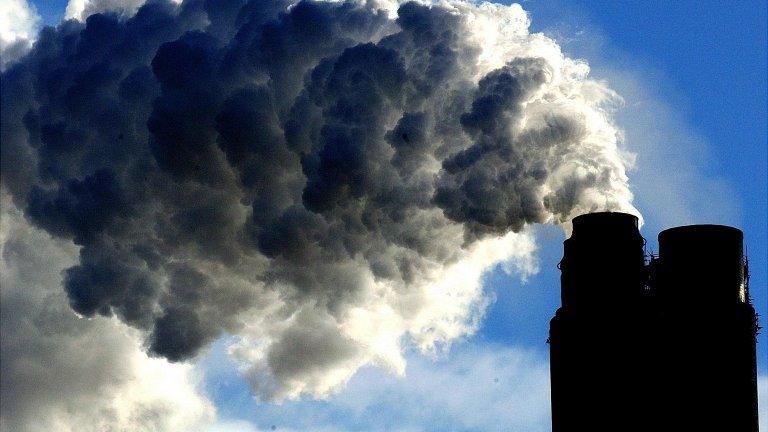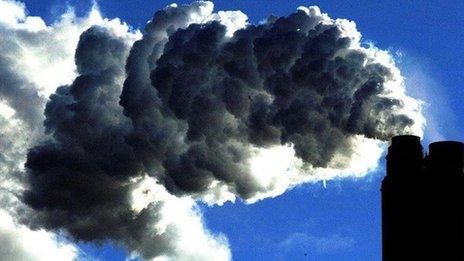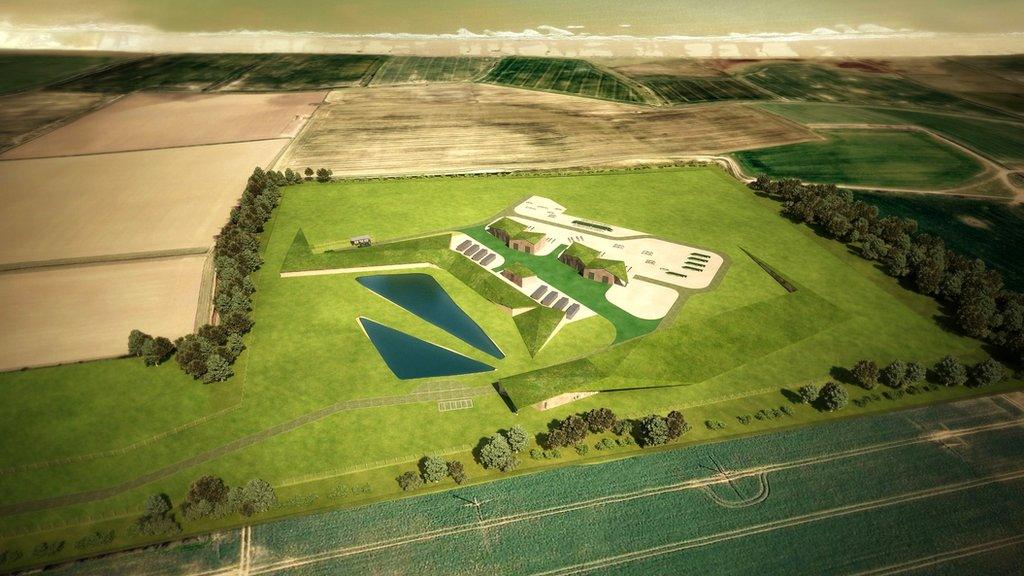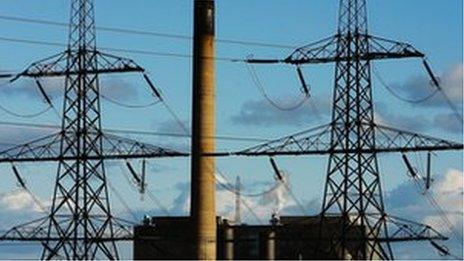'Anger' over carbon capture and storage delays
- Published
Gas is trapped at a power station before being stored under the sea
Scientists involved in carbon capture and storage (CCS) are said to be "angry and depressed" at the UK government's slow progress on the issue.
A UK-wide £1bn competition to design and build commercial CCS systems has been beset with problems and delays.
A leading Scottish expert in the field, Prof Stuart Haszeldine, has claimed urgent progress is needed as part of the fight against global warming.
The UK government said it remains committed to CCS.
It is understood a decision on the next stage of the competition is likely to be made at the turn of the year.
Coal and gas-fired power stations provide much of the world's electricity, but they also produce huge amounts of greenhouse gas such as CO2, which contribute towards global warming.
Fossil fuels
CCS systems could prevent those gases being pumped into the atmosphere.
It involves trapping the gases at a power station, moving it down pipes and then storing it deep underground, in this case under the North Sea, where in theory it will not enter the atmosphere
But no announcement has yet been made by the government on who has won the competition for the massive contracts which are on offer to take CCS onto a commercial level.
Prof Haszeldine, of Scottish Carbon Capture and Storage, told BBC Scotland much more needed to be done by UK ministers.
He added: "We know the global change is getting faster rather than slower as we continue to burn fossil fuels. We know scientifically we are half way through our allocated amount of fossil fuel until climate change becomes unstoppable.
"What we are asking is that we get on and do something about it, that we stop talking and start doing.
"People who are working on the pure science are depressed that their message is not being heard adequately and the people who are trying to do something practical working with industry are getting quite angry that they are being ignored as well.
"Continually, governments just kick the can down the road in the UK and in Europe".
Test systems
Prof Haszeldine called on the Treasury and the UK Department of Energy to take much bolder steps to speed up their timetables.
He said as well as tackling global warming, there was the potential for CCS to create thousands of jobs to replace the ones which will be lost as North Sea oil and gas runs down.
Much of the technology involved in CCS is not particularly new, with different parts of the process having been used for years in the oil and chemical sectors
But there are no projects that use all of these different stages together on a commercial scale at a power station, although the UK does currently have two test systems operating - one at Peterhead in Aberdeenshire and the other at the Drax power station in North Yorkshire.
UK Energy Minister Greg Barker said he understood why there was impatience to go "faster and further".
He added: "When we came into power we unfortunately had to pretty much start again in terms of CCS, but we now have a really strong competition with players wanting to come in and be part of a CCS future here in Great Britain, and I hope we will have more news on that very shortly."
- Published21 October 2013

- Published27 September 2013

- Published23 September 2013

- Published20 September 2013

- Published9 July 2013

- Published20 March 2013
